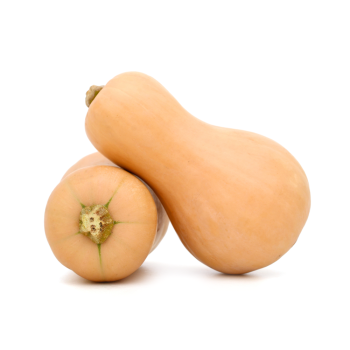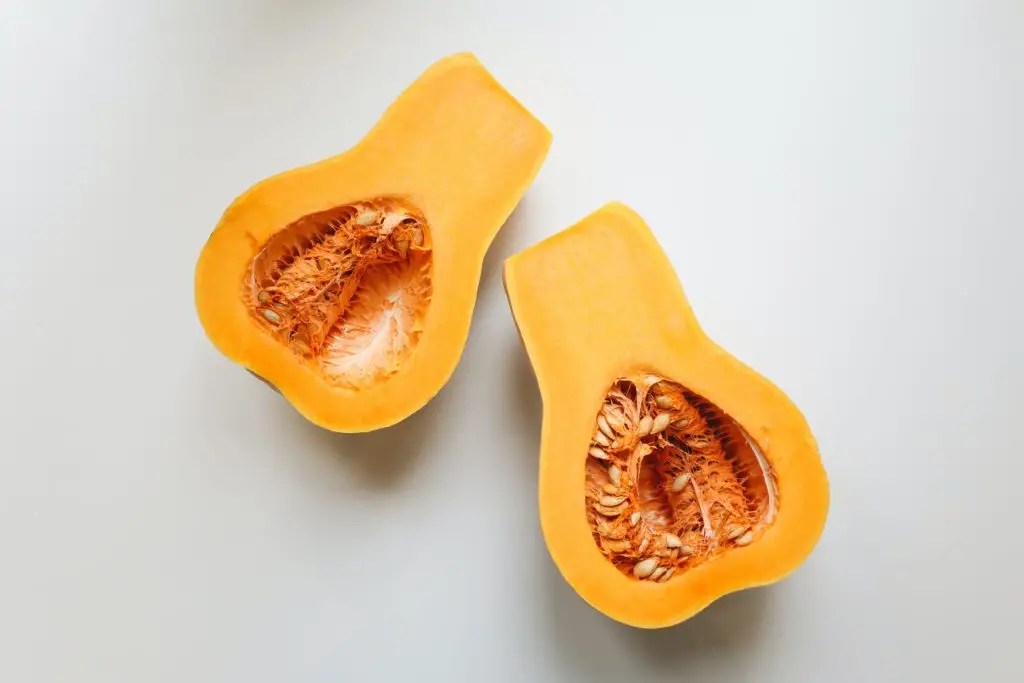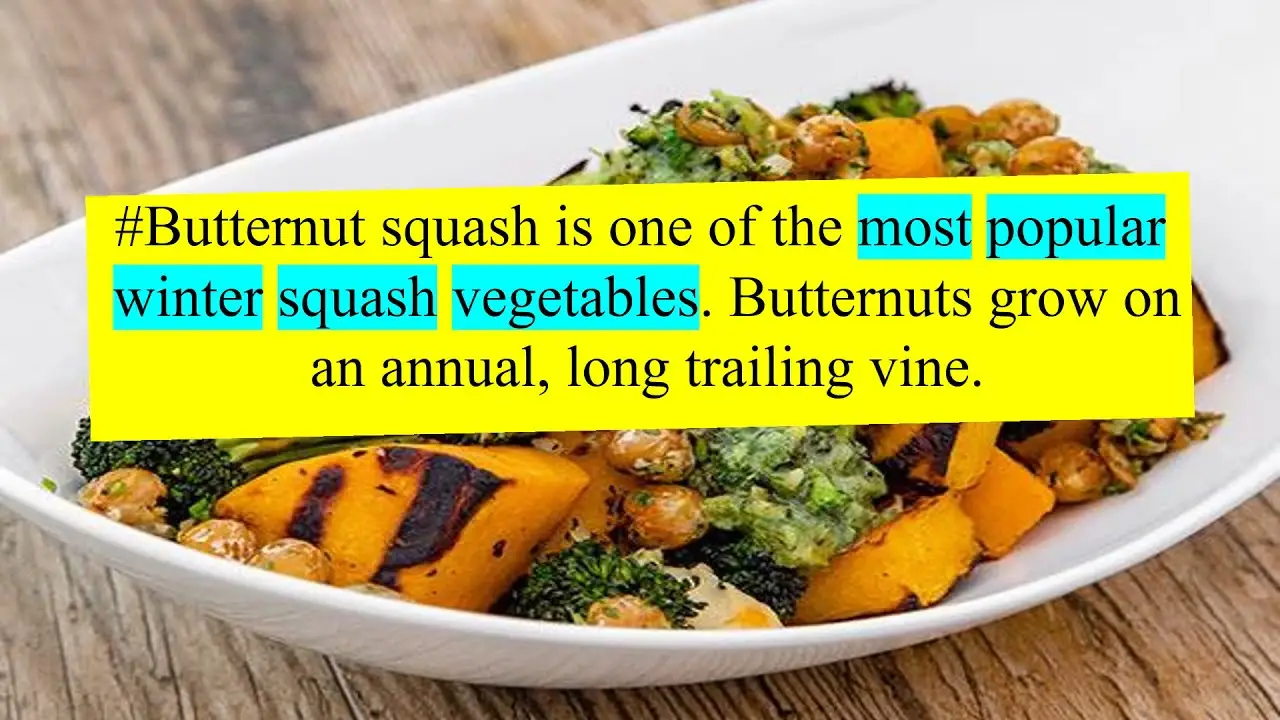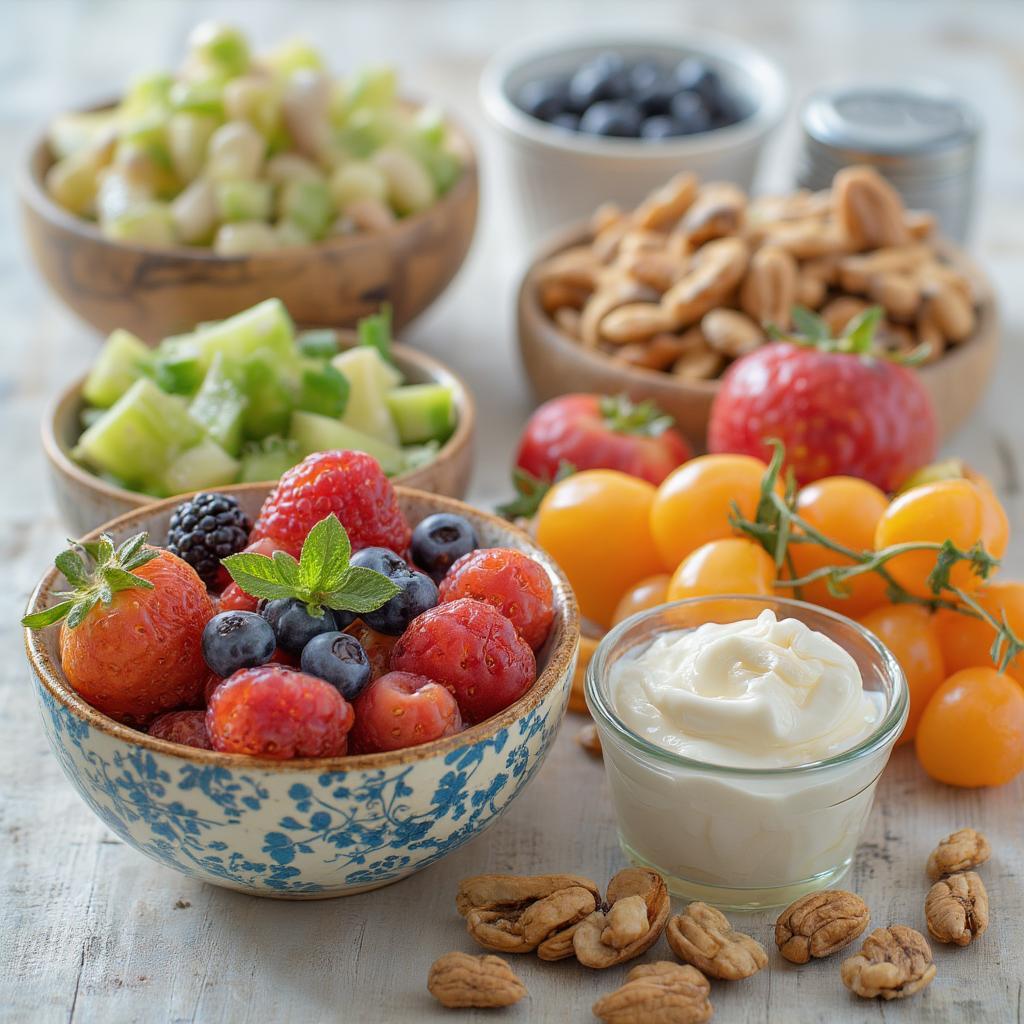Butternut Squash Nutrition Facts
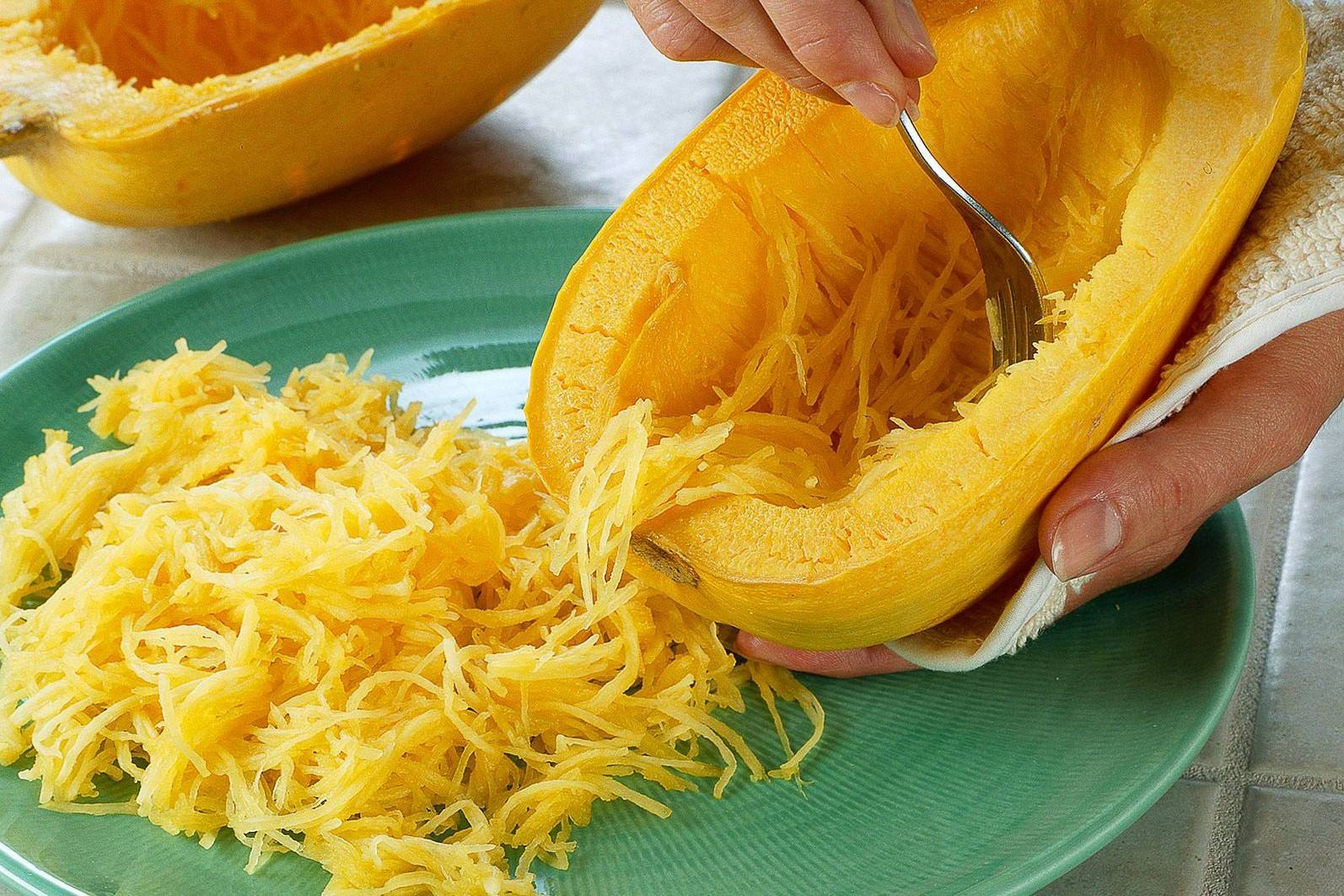
Butternut squash is well known for its stellar nutritional profile. As a nutrient-dense, low-calorie vegetable, butternut squash provides substantial amounts of key vitamins, minerals, antioxidants, and other beneficial plant compounds that promote good health. Understanding butternut squash nutrition can help you incorporate this nutritious veggie into a healthy diet.
Butternut Squash Nutrition Facts
Butternut squash is low in calories yet packed with essential nutrients. Below are the nutrition facts for 1 cup of cooked, cubed butternut squash (approximately 245g):
| Nutrient | Amount | % Daily Value |
| – | – | – |
| Calories | 82 | 4% |
| Carbohydrates | 21g | 7% |
| Fiber | 3g | 12% |
| Protein | 2g | 4% |
| Fat | 0.5g | 1% |
| Vitamin A | 4857IU | 97% |
| Vitamin C | 19.5mg | 32% |
| Potassium | 582mg | 17% |
| Copper | 0.27mg | 15% |
| Manganese | 0.18mg | 9% |
| Magnesium | 39.7mg | 10% |
As the table shows, butternut squash is:
- Low in calories and fat
- A good source of fiber, vitamin A, vitamin C, and magnesium
- An excellent source of vitamins A and C
The exceptional vitamin A content is one of the most impressive benefits of butternut squash nutrition.
Vitamin A
One cup of butternut squash provides a whopping 4857IU of vitamin A, meeting 97% of the RDI.
Vitamin A plays a vital role in:
- Vision
- Immune function
- Cell growth
- embryotic development
- reproduction
As an antioxidant, it also protects against free radical damage.
Consuming adequate vitamin A is particularly important for pregnant women, infants, and children to support growth and development.
Vitamin C
With 19.5mg of vitamin C per cup, butternut squash meets 32% of the RDI for this essential nutrient.
Vitamin C is crucial for:
- Collagen production
- Wound healing
- Immune system function
- Iron absorption
- Antioxidant activity
Overall, the exceptional vitamin A and C content makes butternut squash an ideal food to promote eye health, immunity, skin health, and antioxidant protection.
Fiber
Butternut squash is a good source of fiber, providing 12% of the RDI per cup.
Fiber is beneficial for:
- Digestive health
- Blood sugar control
- Cholesterol management
- Weight maintenance
Getting adequate fiber is linked to reduced risks of heart disease, diabetes, diverticulitis, and colon cancer.
Potassium Magnesium
Butternut squash provides valuable amounts of potassium and magnesium, meeting 17% and 10% of the RDI per cup respectively.
Potassium supports:
- Fluid balance
- Nerve signaling
- Muscle contractions
Magnesium is involved in:
- Energy production
- Muscle and nerve function
- Blood pressure regulation
- Blood sugar control
The combination of potassium and magnesium in butternut squash makes it beneficial for heart health, muscle function, and metabolic health.
Manganese, Copper Other Minerals
Butternut squash contains a variety of other trace minerals like manganese, copper, phosphorus, iron, and calcium.
These minerals support bone health, red blood cell formation, enzyme function, and overall metabolism. The minerals in butternut squash help ensure optimal nutrient utilization from the foods you eat.
Butternut Squash Nutrition Data
Below are some key details about the nutrition data for butternut squash:
- One medium butternut squash (about 2 pounds) provides approximately 5 cups of cubed, cooked squash.
- Butternut squash is low in fat and protein, with over 80% of its calories coming from carbohydrates.
- It has a glycemic index of 75, which is considered high (pure glucose has a GI of 100).
- The calorie count comes mostly from complex carbs and natural sugars rather than added sugars.
- Butternut squash provides only trace amounts of omega-3 and omega-6 fatty acids.
- The main antioxidants include the carotenoids beta-carotene, alpha-carotene, beta-cryptoxanthin and lutein/zeaxanthin. These all contribute to the high vitamin A content.
- Additionally, butternut squash contains small amounts of polyphenols like quercetin and caffeic acid, which provide antioxidant and anti-inflammatory effects.
Calories
There are 82 calories in 1 cup of cooked, cubed butternut squash. Given the low calorie density, butternut squash can help you feel full while supporting weight loss or maintenance goals.
Carbohydrates
A cup of butternut squash contains 21g of carbohydrate, mostly in the form of natural sugars and fiber. The main sugar is sucrose. Butternut squash has a moderately high glycemic index, meaning it causes a more rapid rise in blood sugar compared to low GI foods.
Protein
With only 2g of protein per cup, butternut squash is not a significant source of this macronutrient. However, the protein it provides includes small amounts of essential amino acids.
Fat
Butternut squash contains less than 1g of fat per cup, with saturated fat, polyunsaturated fat, and monounsaturated fat all providing trace amounts. Given the very low fat content, butternut squash is appropriate for low fat diets.
Butternut Squash Nutrition Facts 100g
The nutrition information provided on food labels is typically for a 100g serving. Here are the main nutrition facts for 100g of cooked, cubed butternut squash:
- Calories: 34
- Carbohydrates: 8.6g
- Fiber: 1.2g
- Sugars: 4.8g
- Protein: 0.9g
- Fat: 0.1g
- Vitamin A: 2000ug
- Vitamin C: 8mg
- Potassium: 240mg
- Manganese: 0.077mg
For a sense of serving size, 100g of butternut squash is approximately:
- 1⁄2 cup cooked, cubed
- 4-5 cubes or chunks
- 1 cup grated or mashed
Weight Gain Foods A Comprehensive Guide
Protein Rich Vegetarian Foods for Weight Loss
Butternut Squash Nutrition vs Sweet Potato
Butternut squash and sweet potatoes have similar nutritional benefits, flavors, and culinary uses. Here is how they compare:
| Nutrient | Butternut Squash | Sweet Potato |
| – | – | – |
| Calories | 82 per cup | 114 per cup |
| Carbs | 21g per cup | 27g per cup |
| Fiber | 3g per cup | 4g per cup |
| Vitamin A | 97% DV | 76% DV |
| Vitamin C | 32% DV | 30% DV |
| Potassium | 17% DV | 16% DV |
| Beta-carotene | 5,897mcg | 7,709mcg |
As you can see, sweet potatoes contain more calories and carbohydrates than butternut squash per serving. However, butternut squash has higher amounts of vitamins A and C.
Both vegetables are superb sources of vitamin A and beta-carotene. Sweet potatoes contain more potassium, but butternut squash provides more fiber.
Overall, butternut squash has a slight edge over sweet potatoes in terms of nutrient density, given the lower calorie content. But they can be used interchangeably in most recipes.
Butternut Squash Nutrition Info From USDA
The United States Department of Agriculture (USDA) provides thorough nutrition data for butternut squash and other foods.
Here are some key facts from the USDA database:
- Based on a 100g serving, butternut squash provides 86% of the DV for vitamin A, 13% for vitamin C, and 8% for potassium and manganese each.
- It contains small amounts of B-vitamins including folate, thiamin, niacin, vitamin B6, and pantothenic acid.
- The predominant minerals are manganese, phosphorus, magnesium, copper, potassium, and calcium.
- Over 75% of the calories come from carbohydrates, about 10% from protein, and under 10% from fat.
- The total carbohydrate content is 9g per 100g, which includes 2g of dietary fiber and 4g of sugars.
- The glycemic index ranges from 75 (cooked) to 85 (canned).
So in summary, the USDA data highlights butternut squash as:
- Low in calories and fat
- High in vitamin A and a good source of vitamin C
- Rich in minerals like manganese, magnesium, potassium, and phosphorus
- An excellent source of dietary fiber
Butternut Squash Nutrition Profile in The UK
The British Nutrition Foundation provides nutrition facts for butternut squash typically found in the UK.
Here is the butternut squash nutrition profile per 100g:
- Calories: 26
- Carbs: 6.8g
- Sugars: 4.1g
- Fiber: 1.3g
- Fat: 0.1g
- Protein: 1.1g
- Vitamin C: 11mg
- Vitamin A: 1500ug
- Iron: 0.6mg
- Calcium: 21mg
- Folate: 15ug
As you can see, the data from British sources is fairly consistent with USDA data.
Key features of butternut squash nutrition in the UK include:
- Low calorie density
- Rich in vitamin A and vitamin C
- Good source of fiber
- Contains iron, calcium, and folate
No matter where you are located, butternut squash offers exceptional nutritional value and health benefits.
Butternut Squash Nutrition Whole and Uncooked
Looking at the nutrition data for uncooked, whole butternut squash gives a better understanding of how cooking impacts its nutrients.
Here is the USDA data for raw, whole butternut squash per 100g:
- Calories: 36
- Carbs: 9.2g
- Sugars: 2.2g
- Fiber: 1.1g
- Fat: 0.1g
- Vitamin A: 474ug
- Vitamin C: 18mg
- Manganese: 0.103mg
When you cook butternut squash, several important changes occur:
- Calories are reduced due to water loss
- Fiber content decreases slightly
- Vitamin A and manganese increase substantially
- Vitamin C decreases moderately
- Sugars become more concentrated
This illustrates how cooking makes some nutrients in butternut squash more bioavailable. Cooking softens the fibrous flesh and cell structure, releasing beneficial compounds like beta-carotene.
Butternut Squash Nutrition vs Potato
How does butternut squash compare to the nutrition profile of potatoes?
| Nutrient | Butternut Squash | Potato |
| – | – | – |
| Calories | 82 per cup | 113 per cup |
| Carbs | 21g per cup | 26g per cup |
| Fiber | 3g per cup | 2g per cup |
| Sugars | 5g per cup | 2g per cup |
| Vitamin C | 32% DV | 27% DV |
| Potassium | 17% DV | 16% DV |
| Vitamin B6 | 8% DV | 27% DV |
As you can see, potatoes and butternut squash have some nutritional similarities. However, butternut squash contains fewer calories and carbs than potatoes per serving.
It also provides a greater percentage of vitamins A and C. Potatoes contain nearly 3 times more vitamin B6 but are lower in fiber.
Overall, butternut squash comes out on top in terms of nutrient density. But both can play a valuable role in a healthy diet.
Butternut Squash Nutrition Reddit Threads
Reddit can provide a useful perspective on butternut squash nutrition. Here are some highlights from Reddit threads on this topic:
- Many users comment on the rich, sweet flavor of butternut squash. Some describe it as “nature’s candy” and enjoy using it in both sweet and savory dishes.
- Multiple people mention roasting butternut squash to intensify its flavor. Oven-roasting caramelizes the natural sugars.
- Users point out the fiber content helps promote satiety and digestive health. The high fiber makes it extra filling.
- People looking to reduce carbohydrates note that butternut squash is lower carb than potatoes.
- Parents comment that the vitamin A benefits growing children, especially picky eaters. It provides healthy nutrients kids often lack.
- Those looking to boost immunity mention vitamin C and antioxidant content during cold season.
- People mention butternut squash is budget-friendly and stores well compared to other produce.
So in summary, key benefits highlighted on Reddit include fiber content, vitamin A and C, and sweet nutty flavor. These align with the impressive nutrition profile.
Butternut Squash Nutrition Facts When Cooked
Cooking has some effects on the complex nutritional profile of butternut squash:
- Calories – Calories are reduced slightly by water loss during cooking.
- Vitamins – Vitamin A increases substantially with cooking, but vitamin C decreases moderately.
- Minerals – Minerals like manganese and potassium become more concentrated during cooking.
- Carotenoids – Cooking boosts the bioavailability of beneficial carotenoids like beta-carotene.
- Fiber – The natural fibers in butternut squash soften when cooked, reducing insoluble fiber slightly.
- Sugars – Natural sugars are concentrated in cooked butternut squash as water evaporates.
While cooking does result in some nutrient loss, the overall nutritional value of butternut squash improves with cooking. Roasting, steaming, or sautéing cubed butternut maximizes nutrition.
Butternut Squash Nutrition Profile on Keto Diet
With its relatively low carb content, butternut squash can fit well into a keto diet:
- At 21g net carbs per cup, butternut squash must be portioned appropriately for keto.
- The 3g of fiber per serving helps promote feelings of fullness.
- The low calorie density makes it possible to consume moderate portions.
- Butternut squash can help increase vegetable intake on keto diets.
- Roasting it intensified the sweetness, mimicking sugars you must restrict on keto.
Potential benefits of butternut squash on keto include:
- Boosting vitamin A intake, which is often insufficient.
- Supporting gut health and regularity with fiber content.
- Providing potassium to reduce keto flu symptoms.
- Offering antioxidants like carotenoids and vitamin C.
- Adding variety and nutrients compared to starchy vegetables.
While you must”,”completion”:” portion sizes due to the carbs, butternut squash can be an occasional component of a ketogenic eating pattern.
Butternut Squash Nutrition Per Ounce
The standard portion size for butternut squash is 1 cup cooked, which provides approximately 82 calories and 21g of carbohydrate. However, examining the nutrition per ounce can be helpful for monitoring portions.
Here is the butternut squash nutrition profile per ounce:
- Calories: 8
- Carbs: 2g
- Fiber: 0.3g
- Sugars: 0.5g
- Vitamin A: 485 IU
- Vitamin C: 2mg
- Potassium: 58mg
As you can see, a single ounce of cooked, cubed butternut squash contains:
- 8 calories
- 2g net carbs
- 10% DV vitamin A
- 4% DV vitamin C
When portioning butternut squash, keep in mind that a medium squash equals approximately 5 cups cooked. Sticking to 1 ounce or 1/4 cup portions helps keep calories and carbs in check.
Butternut Squash Nutrition Label Breakdown
Reading nutrition labels provides the most accurate information on the nutrients in packaged butternut squash products. For example:
A 12oz package of pre-cubed, cooked butternut squash contains:
- Calories – 100
- Total fat – 0g
- Sodium – 0mg
- Total carbs – 24g
- Fiber – 5g
- Sugars – 5g
- Protein – 2g
It also provides:
- 45% DV Vitamin A
- 35% DV Vitamin C
- 8% DV calcium
- 6% DV iron
Key takeaways:
- Excellent source of vitamins A and C
- Low in calories, fat, and sodium
- Provides dietary fiber and a range of vitamins/minerals
Checking labels ensures you get the right nutrients for recipes and dietary needs.
Butternut Squash Nutrition for Babies
Butternut squash can be an excellent first food for babies thanks to its nutritional profile.
Benefits of butternut squash for babies include:
- Low allergy risk – Butternut squash is less likely to cause allergies than cereals with gluten.
- High vitamin A content – Supports the rapid development during a baby’s first year.
- Anti-inflammatory benefits – The antioxidants support the developing immune system.
- Mild, sweet flavor – Babies tend to enjoy the flavor of naturally sweet squash.
- Smooth, creamy texture – Easy for babies to chew and swallow when cooked.
- Fiber content – Helps prevent constipation issues in babies switching to solids.
Introduce pureed, cooked butternut squash Here is the continuation of the article:
Introduce pureed, cooked butternut squash around 6 months of age, starting with 1-2 teaspoons per feeding. Slowly increase to 1 ounce or more per day.
Plain, unsweetened squash allows babies to experience the natural flavors. Avoid adding salt, butter or sweeteners. By 1 year, babies can enjoy diced, cooked squash as finger food.
Butternut squash gives babies crucial nutrients like vitamin A, potassium, and fiber. Along with breastmilk or formula, butternut squash helps lay a healthy nutritional foundation. Consult your pediatrician before introducing any new foods.
Butternut Squash Nutrition Carbs, Benefits and Facts
Butternut squash is higher in carbohydrates than many vegetables, but offers some unique benefits and important nutrients. Here is a closer look at the health impacts of the carbohydrates in butternut squash:
Natural Complex Carbs
- The 21g of carbs in 1 cup of butternut squash come mostly from complex carbohydrates, not simple or refined sugars.
- Complex carbs provide sustained energy and fiber. They do not spike blood sugar like simple carbohydrates.
Moderate Glycemic Index
- With a glycemic index of 75, butternut squash has a moderately high impact on blood sugar.
- The fiber content helps control the rate of carbohydrate absorption and reduce the glycemic load.
Rich Fiber Content
- Approximately 29% of the carbs in butternut squash come from dietary fiber, a mix of insoluble and soluble fiber.
- Fiber slows digestion, promotes satiety, and feeds healthy gut bacteria. It can reduce the risk of diabetes and heart disease.
Source of Vitamins Minerals
- In addition to fiber, the carbohydrate content of butternut squash delivers essential vitamins and minerals.
- It provides exceptionally high amounts of immune-boosting vitamins A and C.
Overall, the carbohydrates and fiber in butternut squash provide energy, nutrients, and health benefits that outweigh the glycemic impact for most individuals. Enjoying it in moderation can be part of a healthy diet.
Unlock the Ultimate Luxury Experience with Royal Exotic RentalsRest And Relaxation On The Road Less Traveled: The Best Off-Road Camping Trailers



